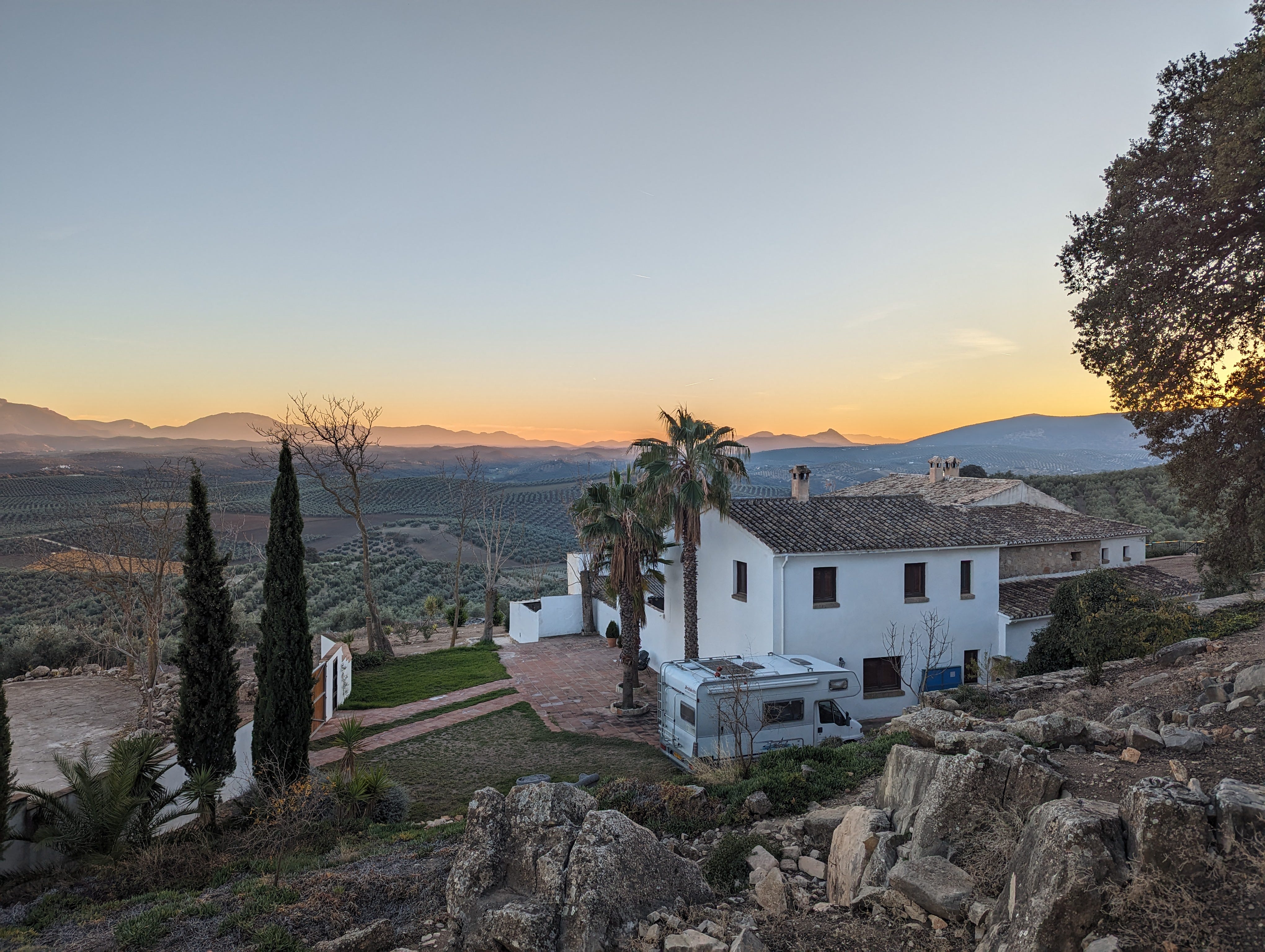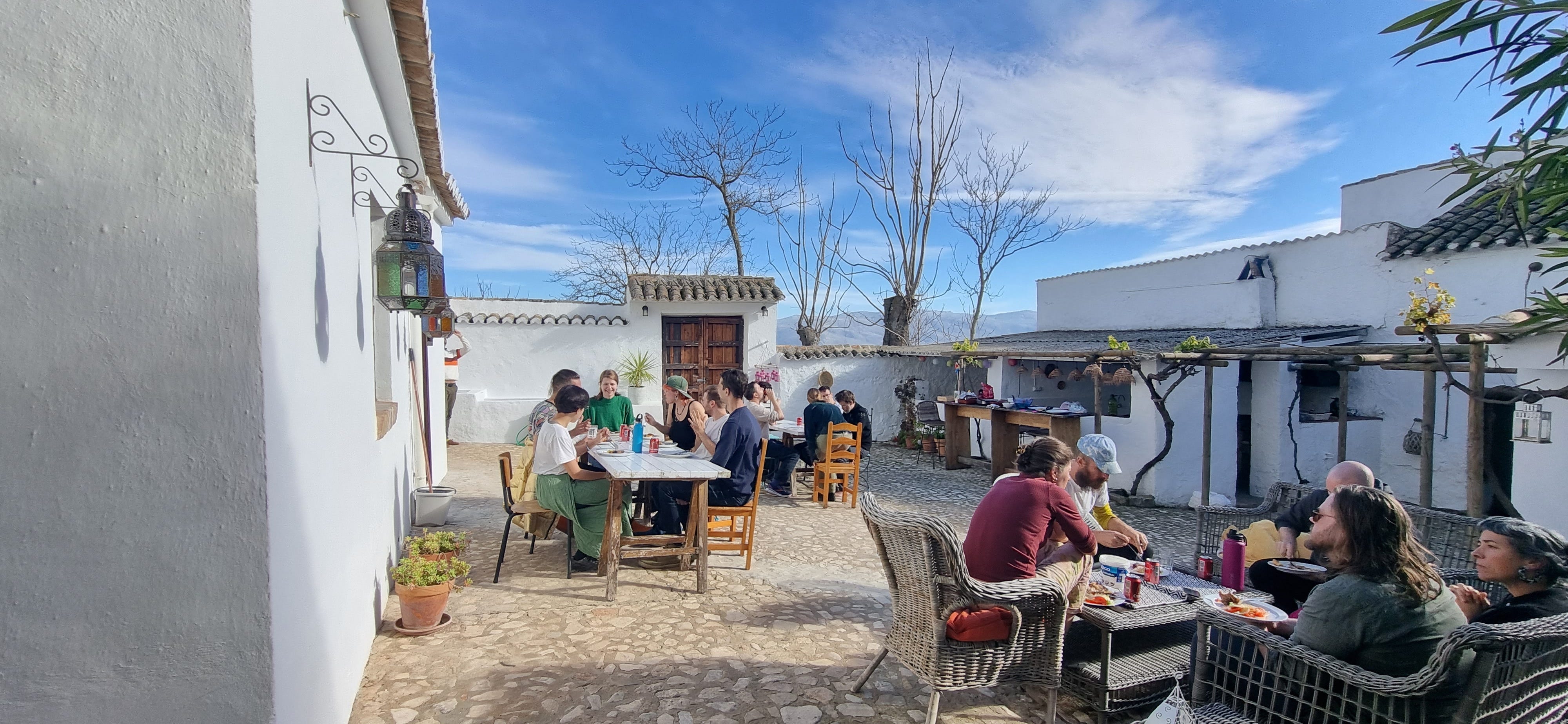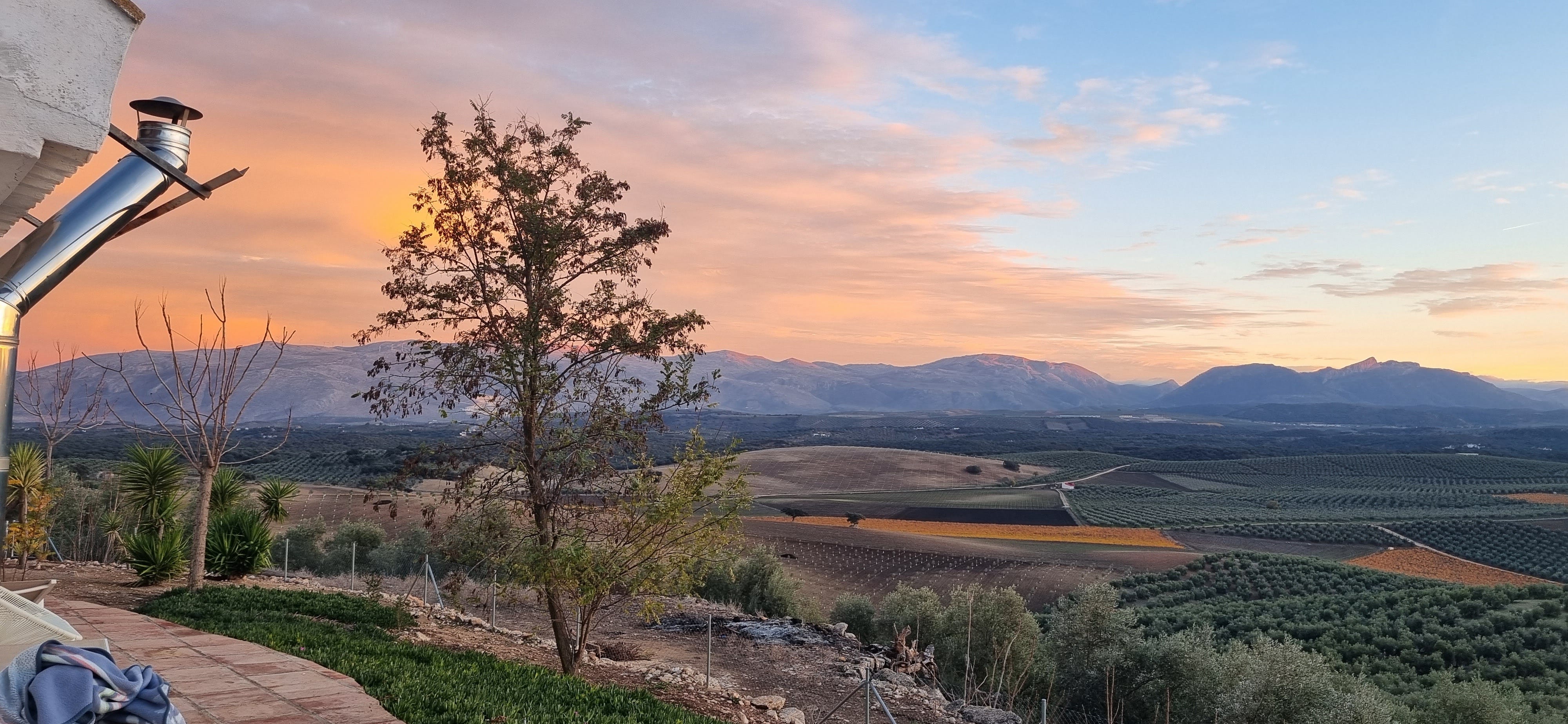Running a local lodge for your internet friends
A nuts-and-bolts look at the economics of running a temporary retreat venue
Nati and I have just started a 3-month experiment: we’ve rented a big house in Spain to host our friends & clients.
We moved in two weeks ago, and just wrapped up the first event. I want to encourage more people to do something similar. So in this post I’m mostly going to focus on the economics of this experiment. But first I’m going to contextualise what we’re doing within a broader movement.

I’m part of a network of people who use Twitter as a legitimate place to make friends. Many of us share an aspiration to move beyond purely online connections, towards local events and eventually perhaps permanent communities.
Short-term events have become a well-established format within this network. It’s increasingly common to see 20-40 people get together for 3-5 days: there’s a new one happening every 6 weeks or so. Many of them are not publicly advertised so it’s hard to get an accurate measure, but you can see this calendar , or follow some of these organisers to stay in the loop.
Short-term events are lots of fun, they tend to forge very strong friendships, and they can be transformative for participants (see Rival’s report from Jesscamp for example).
For many of us, the events feel like a prelude, they seem to hint at more permanent communal ways of living. When I say “communal” I’m not thinking of a commune exactly, more like an informally organised neighbourhood with strong social fabric and abundant opportunities for mutual aid.
For me, the big mystery is how to cross the gulf from short-term events to permanent local community infrastructure.
In August 2022, I started to notice a trend towards medium-term co-living residencies, ranging from a week to 3 months. These residencies are a space where you can learn about community living by direct experience, and refine your taste about what kind of living arrangements you’re actually interested in.
This year, we’ve seen some more headway on the long-term experiments, most notably: Elkenmist, Life Itself, The Neighborhood SF and Fractal NYC.
So that’s the context that encouraged Nati and I to take the plunge and commit to renting a 10-bedroom house in the south of Spain for three months. One of our motivations is to support the emergence of this peculiar new form of hybrid online-offline community building.
The short-term events are a stable fixture, so now I want to encourage organisers to take the next step and attempt more ambitious, longer-term experiments. To that end, I’m going to share an inside look at the economics of hosting a 3-month community space.
Finances
We don’t have a lot of start-up capital, so we’ve had to make the space profitable from day one. After the first event, I can say we’re on track.
Accounting for the costs of renting the house, leasing a car, and paying utilities, we’re expecting to pay around €12,000 for the 3 month period. For our accounting, we’re splitting that total across 4 events. In other words, each of these events “owes us” €3,000 (12,000 ÷ 4).
We’re testing a range of different income streams:
We’re hosting two gatherings for Twitter friends - the first one just wrapped up this week. We had 18 guests, each paying between €200 and €500 for 4 nights (people with higher income pay more to support the attendance of people with lower incomes). In total we received €6,500 income; we spent about €1,500 on food + misc expenses; after paying the €3,000 house fee, we’re left with about €2,000 profit (pre-tax).
We’ve got philanthropic backing to run a retreat for the Microsolidarity network. This one will not be oriented to making profit, but it won’t cost us money either.
We’re running a small retreat for leaders of non-profit organisations, with participants paying €1,500-2,500 each. The higher ticket price means this one is an opportunity for us to earn a decent wage.
Between events, we’ve invited people to come for short stays to co-live and co-work with us. Guests are paying €200-350/week (all inclusive), so it’s fairly affordable for them, while generating useful income for us.
It’s nice to come out with a surplus on the first event. €2,000 is a terrible hourly rate if you account for all the organising work, but it’s a million times better than losing money! At the end of the 3 month experiment, I’ll be satisfied if we break even; I’m thinking of it more as a learning experience than a profit-making exercise.
Ask me again in a couple months, but from this first foray, I gotta say: I am an enthusiastic cheerleader for anyone who might want to try something similar to what we’re doing.
If you are going to emulate us, there are a few other factors to consider:
Reputation. We benefit from having a strong reputation in multiple networks, not just the Twitter scene, but also from our work with The Hum, and Microsolidarity. It would be much harder to copy this experiment if you don’t already have an established reputation.
Location. This house has pros and cons. Pros: amazing landscape, cozy decor, the best weather you’ll find in Europe over winter. Cons: transport logistics out here are time-consuming and carbon-intensive. If we were north of the Pyrenees, more guests would take the train instead of flying.
Size matters. The house can fit about 20 people, which is nice and cozy, but the profit margins would be healthier if we could accomodate more people. For example, we had 2 people drop out of the first event due to illness — because that’s such a large share of the total capacity, it had a disproportionate impact on the profit margins. Refunding just two tickets cut the profit by 33%.
Multiple eggs in multiple baskets. We diversified income streams for the house, and we’re simultaneously running our digital business (The Hum). Doing it this way means that we’re hedged against various failure modes (e.g. pandemic?), and ideally the different enterprises are mutually enhancing. Personally I wouldn’t commit to a fulltime residential business without some digital backup.
p.s. Thanks to Vynn Suren for the amazing photos!






Love it. Good work. I'm living at Selina Arequipa, in Arequipa, Peru. It's a hostel/hotel compound with short-medium term guests, a pool, morning yoga, restaurant, bar, firepit, tree house, library and kitchen. It's great. The play pop music too much but they turn it down when I request. There's also a co-working space, garden, great staff and security. Bullish on Selina, and the stock price, which is in the gutter right now.
Good work. I love the internet as a tool moving people in the direction of IRL connection. Perhaps internet community isn't a proper community until they spend a night together. Hope to join an event. Spain is amazing and I look forward to returning.